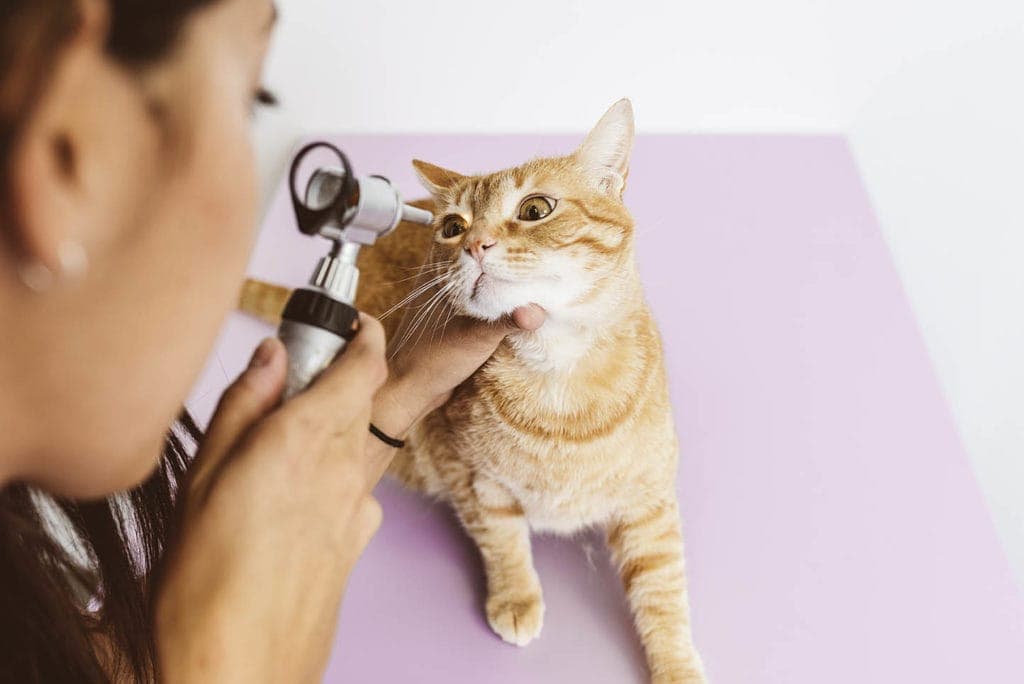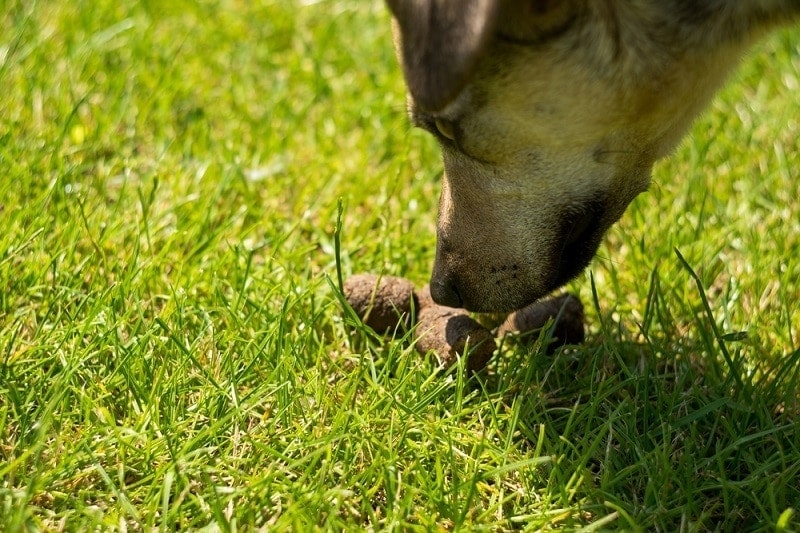Why Does My Cat Lick Food But Doesn’t Eat? (Vet Answer)
By Dr. Leigh Wilder, DVM (Vet)
Updated on
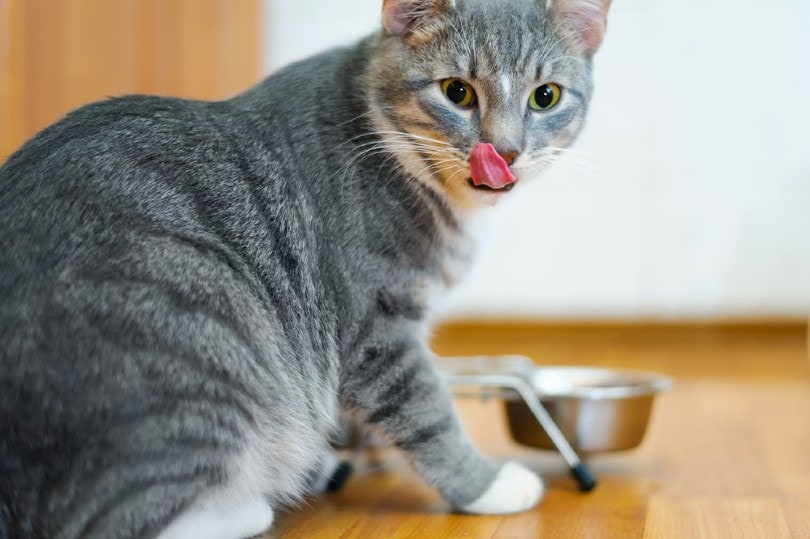
A cat that has lost its appetite is a likely source of concern for the devoted owner. But what does it mean if they still seem interested in their food, without actually eating it? The following article will discuss types of anorexia in cats, possible causes of appetite loss, diagnostic next steps, and potential treatment options for feline anorexia.
What Is Anorexia?
Anorexia is the loss of appetite for food. It may occur on a spectrum from partial to complete, with the terms inappetence or hyporexia being used to describe a decreased appetite. True anorexia can be described as either being primary or secondary1; primary anorexia occurs due to issues directly causing a lack of appetite, while secondary anorexia results from disease processes that interfere with a cat’s normal hunger response.
Cats may also suffer from pseudoanorexia. Unlike cases of true anorexia, felines affected by pseudoanorexia do not experience appetite loss—but are unable to eat2 for other reasons. Cats with pseudoanorexia may seem hungry, yet attempt to eat their food without success.
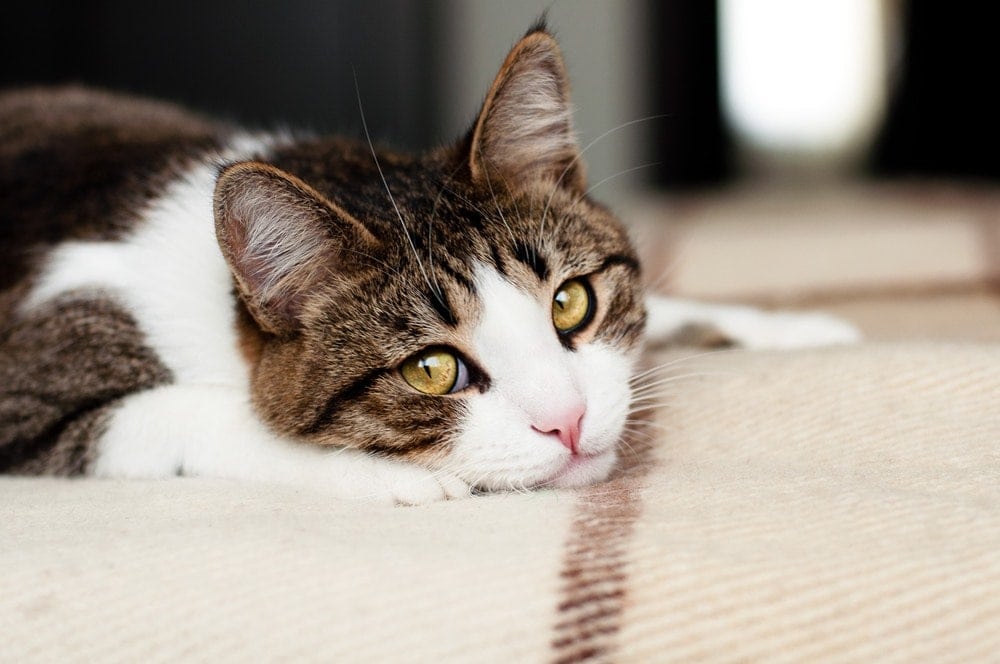
Diagnostics for the Anorexic Cat
If you are concerned that your cat may be experiencing anorexia, a visit to the veterinarian is in order. Feline anorexia is not a diagnosis, but a symptom—one which can be seen with a wide variety of different disease processes. Your veterinarian will start by obtaining a complete history regarding your cat’s symptoms and may ask you questions such as:
- When did you first notice changes in your cat’s appetite?
- Has your cat been experiencing any other signs at home?
- What food does your cat eat, and have there been any recent changes to their diet?
- Is your cat currently taking any medications or supplements?
- Have there been any changes in your home such as new pets or family members, or changes in the normal household routine?
After discussing your cat’s history, your veterinarian will perform a complete physical exam. Based on your cat’s history and exam findings, they will likely recommend diagnostic testing for further evaluation. Commonly recommended tests for an anorexic cat may include a complete blood count (CBC), biochemical profile, and a urinalysis. Based on these test results and the suspected cause of anorexia, further diagnostics such as radiographs, ultrasound, and testing for pancreatitis or infectious disease may also be considered.
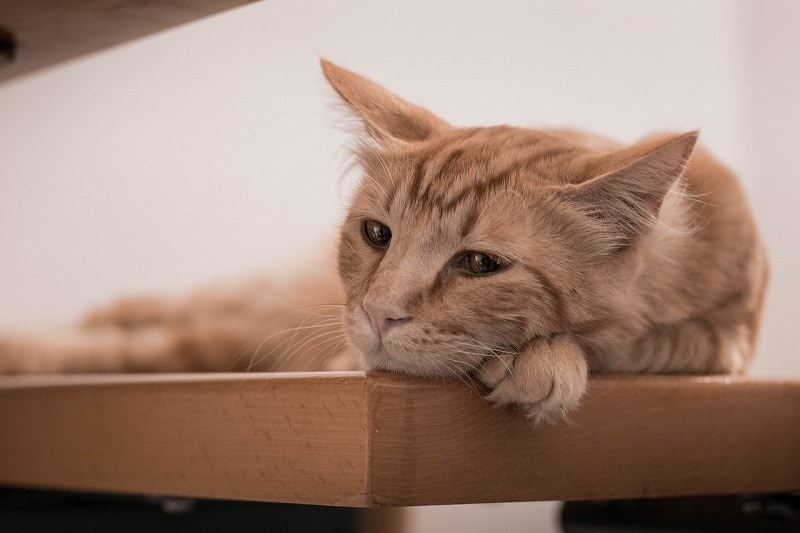
Causes of Appetite Loss in Cats
There are many possible causes of anorexia and pseudoanorexia in cats. Potential explanations for true anorexia or appetite loss in felines may include:
- Kidney disease
- Anosmia (inability to smell), which may occur secondary to upper respiratory tract infections
- Pancreatitis
- Medications such as chemotherapy drugs or opioids
- Cancer
- Infectious disease (including bacterial, viral, or fungal infections)
- Painful conditions such as trauma, arthritis, or abscesses
- Gastrointestinal disease
- Behavioral issues such as stress, fear, or anxiety
- Neurologic disease
Cases of feline pseudoanorexia, in which a cat wants to eat but is unable to do so, may be caused by the following issues:
- Oral pain secondary to dental disease, stomatitis, gingivitis, cancer, or temporomandibular joint (TMJ) issues
- Neurologic disease affecting the ability to chew or swallow
- An unpalatable diet
- Inability to access food, either due to location or aggression from other pets at the food bowl

Treatment for Feline Anorexia
Treatment and prognosis for anorexic cats largely depend on the underlying disease that is present. However, depending on the severity and duration of anorexia, your veterinarian may recommend supportive care including the following:
- Treatment of nausea: Anti-emetic medications such as Cerenia (maropitant citrate) may be recommended for anorexic cats, as nausea is an important cause of appetite loss.
- Pain medication: As discussed above, cats suffering from pain—whether it be oral, abdominal, or other—may experience anorexia. Buprenex (buprenorphine) is a commonly used prescription pain medication that may help to improve appetite in cats.
- Improving hydration: Anorexic cats may also be dehydrated. Intravenous fluids can be used by your veterinarian to correct dehydration and electrolyte abnormalities.
- Appetite stimulants: Medications such as Mirataz (mirtazapine transdermal ointment) are used to manage unintentional weight loss, and may be recommended for anorexic cats.
- Nutritional support: Warming up their food, or offering small amounts of tasty foods may tempt some cats to eat on their own. Care must be taken, however, as force-feeding or tempting a cat who is still feeling unwell may lead to food aversion. Your veterinarian may recommend placing a feeding tube through your cat’s nose, esophagus, stomach, or small intestine to deliver more reliable nutrition in a less stressful manner.
Prompt veterinary attention for anorexic cats is important, as felines are prone to developing a condition called hepatic lipidosis secondary to bouts of anorexia. In this condition, excessive amounts of fat are mobilized from peripheral fat stores and transported to the liver, which can eventually lead to liver failure and death if left untreated.
In summary, a cat with a poor appetite is often a more complex issue than meets the eye. A determination of the type of anorexia and the underlying cause of your cat’s poor appetite is essential in guiding appropriate treatment for this worrisome symptom. By working together with your veterinarian, you will be able to better understand your cat’s condition, and provide the support your feline friend needs to get back on their feet!
See Also:
- Why Did My Cat Suddenly Stop Eating? 7 Vet-Reviewed Reasons
- How To Tell If It’s Time To Change Your Cat’s Food? Vet Approved Signs & Tips
Featured Image Credit: mik ulyannikov, Shutterstock

